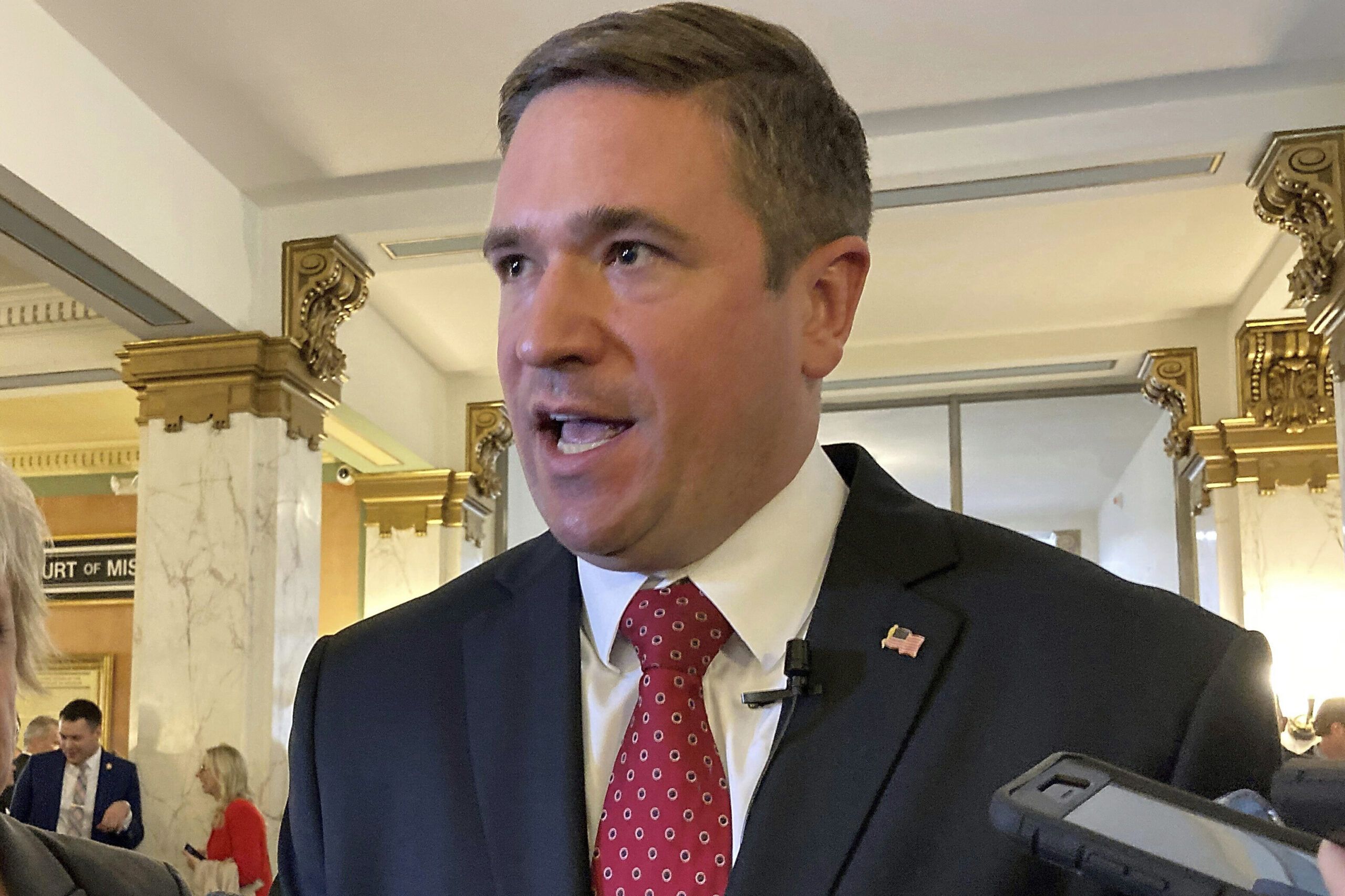

Missouri Republican Attorney General Andrew Bailey is looking into the influence of social workers and therapists as part of his investigation into the Washington University Transgender Center.
According to documents arising from lawsuits regarding the investigation, Bailey is casting a wide net to uncover the web of medical professionals who have a hand in pushing children toward transition, including social workers and therapists.
Bailey’s expansive investigation started after whistleblower Jamie Reed, a former employee at the clinic, filed an affidavit last year regarding what she saw as the lax protocols the clinic followed in order to justify allowing children to seek the often irreversible medical pathway.
“The attorney general of Missouri is absolutely correct in extending his probe into so-called gender-affirming care provided by therapists and social workers,” Dr. Stanley Goldfarb, chairman of medical advocacy group Do No Harm, told the Washington Examiner. “The investigations that are decried by these therapists and social workers are absolutely necessary in order to protect children from treatments whose profound lifelong effects they cannot possibly understand, and therefore they cannot give fully informed consent.”
Social workers and therapists are often cited by critics as being part of the initial phase of encouraging children to claim transgender identity, potentially even planting the idea that a child might be in the wrong body.
According to the Missouri Independent, Bailey is looking beyond the confines of the Washington University Transgender Center itself to uncover the practices of other providers such as Planned Parenthood, which he has also taken separate legal action against and says he hopes to “eradicate” from the Show Me State.
Bailey, backed by a quickly expanding field of medical evidence, has long questioned the efficacy of transgender procedures such as drugs and surgeries, particularly for children, in treating gender dysphoria diagnoses.
“It is now clear that the majority of children who contemplate gender transformation have a great burden of underlying psychological problems that demand careful analysis and treatment from those psychiatrists and psychologists trained to treat such children. Social workers do not have the training nor the expertise to properly evaluate these children,” Goldfarb said. “We now know from multiple systematic reviews conducted in European countries and in the recent Cass report from the United Kingdom that the evidence supporting gender transitions in children is extraordinarily weak, and treating such children with puberty blockers and with sex-altering hormones most likely harms more individuals than it possibly helps.”
Missouri banned transition procedures for children last year, and the state enabled victims to file malpractice claims against facilitators. Later this year, Bailey’s office will defend the law in court against a legal challenge trying to reverse it.
Pro-transition doctors, social workers, and other advocates have decried the law and Bailey’s investigation for making it difficult to operate in Missouri.
Katy Erker-Lynch, the executive director of Promoting Missouri, or PROMO, an advocacy group in the state, told the Independent that the moves from state leaders has “created a hostile environment for medical providers where they are afraid to stay and practice medicine.”
Some social workers and therapists have been interviewed by state investigators, and the state’s medical licensing authority, the Missouri Division of Professional Registration, had 16 open cases by the beginning of May and had interviewed 57 medical professionals.
Bailey’s office requested patient records to aid its investigation last year in order to ascertain the operating procedures of the gender clinic, but the clinic sued to challenge his authority to request the material. As the attorney general is unable to investigate malpractice claims, Bailey used his authority under the Missouri Merchandising Practices Act to look into the clinic on false advertising grounds. The logic behind using the MMPA is to see if clinicians are telling patients that transition can provide some medical benefit that is ultimately unproven and at the very least questionable given the mounting medical evidence.
The clinic’s lawsuit against Bailey’s office has not yet been decided, and the documents requests have brought concern from advocates about patient privacy.
CLICK HERE TO READ MORE FROM THE WASHINGTON EXAMINER
However, according to the attorney general’s response to litigation, the clinic turned over a spreadsheet with a list of patients that included “patient names, encounters and medications, among other information.”
The Washington University Transgender Center did not respond to a request for comment.




